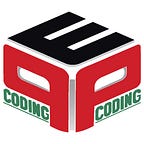How to study Data Structures and Algorithms for Competitive Programming
Data Structures and Algorithms can be quite useful for competitive programming. But you might be confused about which ones to study to perform best in Competitive Programming. So, here we are going to share with you the important algorithms and data structures to help you excel in coding contests.
But first, let’s discuss what competitive programming is and what is the appeal in it. If you already know that, you can skip to the next section.
Competitive Programming
Competitive programming is a mind sport where you have to solve problems through coding with given constraints. You can solve such problems on Codechef, Codeforces, HackerEarth and Hackerrank among others. These are platforms that organize coding contests that can help you earn great rewards and cash prizes while helping you improve your coding skills along the way.
Some contests also provide hiring opportunities as rewards. That’s why many college students decide to participate in coding contests to get them a strong basis to kick off their careers.
Languages you can use: The languages that are preferred for Competitive programming are C++, Java and Python. So, if you have decided to learn DSA, prepare it in one of these languages.
Moreover, you must know some basic programming concepts like:
- Object-oriented programming system
- Iteration through loops
- Statements for decision making (if, do, if else, switch statements)
- Library functions
- Methods
- Error statements
Environment for Competitive Programming:
Once you have got the basics right. You need to start practising. Choose an Integrated development system. It’s a platform where you find a source code editor, automation tools, and a debugger. The websites to get Competitive Programming Environment: Sublime for JavaScript, Visual Studio for C++ or Python.
Once you have equipped yourself with the perfect language, and the perfect environment for competitive programming, you can begin studying DSA.
So, here goes some of the most important algorithms for competitive programming.
- Graph algorithms
- Dynamic programming
- Number theory
- Searching and Sorting
- Geometrical and Network flow algorithms
For the Data Structures for Competitive programming, You have to begin with the easy level DSA questions. Some of the easier data structures are Linked List, Stack, Binary Search Tree and Queue.
Then move onto the more complex ones like Tries, Hash Table, Tree Map, Segment tree, and Tree Map.
Once you have become proficient in those Data Structures, move onto the following ones:
- Suffix Automation
- Suffix Tree
- Radix Tree
- Palindromic Tree
- Link-cut Tree
- Dancing Links
- K-d tree
- and the like.
Note: Remember to take your learning gradually.
There are a variety of Data Structures used in coding contests. They help you pace up your coding to fulfil the time and space constraints.
Understand the dynamics of each data structure and then move on to the complex ones. However, the most important thing is to learn the implementation of Data Structures and Algorithms in Programming.
How to implement DSA
Competitive Programming is a great chance for you to implement DS and Algo. But you can enhance your skills by working on your Github profile. You can build any kind of program on Github and even contribute to opensource projects. This not only strengthens your profile, but also makes you a better programmer.
What next?
To get the ball rolling you need to keep practising more and more complex sets of problems. Understand Computational complexity theory, Knapsack problem, SAT problem and so on.
Looking for a structured course to prepare DSA for competitive programming?
Pepcoding provides a comprehensive and industry-relevant training in competitive programming. It aims to provide you a comprehensive understanding of important Data Structures and Algorithms with over 1200+ questions.
These questions are especially curated for you to ace competitive programming. These are also some of the most common questions in interviews.
You can also participate in coding contests organised on NADOS and win placement opportunities in top-tier product based companies. So, check out NADOS and get on with your competitive programming journey.
Author: Mansi Sabharwal
Also read:
